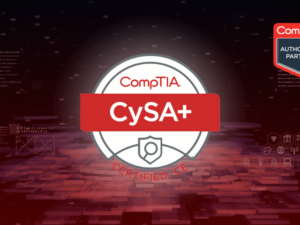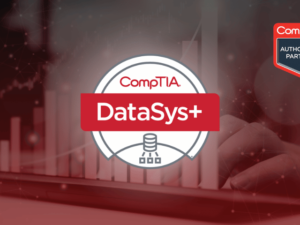PECB Certified Lead Computer Forensics Examiner Certification Training
- Description
- Reviews

Course Overview
Introduction:
Digital forensics plays a crucial role in cybersecurity, legal investigations, and corporate security. This training equips professionals with the skills to conduct forensic investigations, analyze digital evidence, and ensure data integrity. Participants will gain expertise in forensic methodologies and tools across multiple operating systems, including Windows, macOS, Linux, and mobile platforms.
Business Relevance:
Effective digital forensics enhances cybersecurity, strengthens compliance, and improves organizational resilience. This training empowers IT and security professionals to collect, analyze, and present forensic evidence that supports legal and regulatory requirements while protecting business assets.
Target Area:
This training supports key business functions, including:
- Cybersecurity – Strengthening digital defenses and investigating security breaches.
- Legal & Compliance – Ensuring adherence to industry regulations and legal procedures.
- IT Governance & Risk Management – Enhancing decision-making in forensic investigations.
What You’ll Learn & Who Should Enroll
Key Topics Covered:
- Computer Forensics Frameworks: Understanding best practices and forensic methodologies.
- Incident Response & Evidence Collection: Proper procedures for gathering and preserving digital evidence.
- File System & Operating System Forensics: Analyzing data structures and forensic artifacts.
- Mobile Device & Network Forensics: Investigating digital traces across devices and networks.
- Legal & Ethical Considerations: Ensuring compliance with forensic investigation standards.
Ideal Participants:
This course is designed for:
- Computer Forensics Specialists & Consultants – Professionals handling forensic investigations.
- Cybersecurity & Intelligence Analysts – Experts identifying and mitigating digital threats.
- Law Enforcement & Legal Professionals – Individuals conducting forensic investigations and evidence handling.
- IT & Security Managers – Professionals responsible for cybersecurity and forensic response.
- Enterprises & Organizations – Companies enhancing their forensic capabilities and compliance measures.
Business Applications & Next Steps
Key Business Impact:
- Stronger Digital Security: Implement forensic best practices to enhance cybersecurity.
- Regulatory Compliance: Ensure adherence to industry standards and legal requirements.
- Effective Incident Response: Improve forensic capabilities for corporate investigations.
Next-Level Training:
To further expand expertise, consider:
- PECB Certified Computer Forensics Foundation: A foundational course covering key concepts and forensic investigation essentials.
- Lead Cybersecurity Manager: Advanced training in cybersecurity risk assessment, governance, and security management.
Why Choose PECB Certified Training?
- Industry-Leading Curriculum: Designed to meet corporate and law enforcement needs.
- Expert-Led Training: Delivered by experienced forensic professionals.
- Hands-On Learning: Practical exercises and real-world case studies.
Prepare to lead forensic investigations with confidence—enroll today and enhance your organization’s digital forensic capabilities
Course Outline
COURSE OBJECTIVES
- Understand the roles and responsibilities of the Lead Computer Forensics examiner during digital forensic investigation
- Understand the purpose of electronic media examination and its correlation with common standards and
methodologies - Comprehend the correct sequence of steps of a computer incident investigation and digital forensic operation
- Understand the common commercial and open source tools that may be used during incident investigation and digital
forensic operations - Acquire the necessary competencies to plan and execute a computer forensics operation and also implement and
maintain a safety network to protect evidence
TRAINING INCLUSIONS
- Comprehensive training materials and reference guides.
- Hands-on exercises with real-world scenarios.
- PECB Certificate of Training Completion.
- Official PECB Certification Exam.
- Access to industry-leading forensic tools during training.
- 30 Days Post-Training Support.
COURSE OUTLINE
Day 1: Introduction to Incident Response and Computer Forensics concepts
Day 2: Prepare and lead a Computer Forensics investigation
Day 3: Analysis and management of digital artifacts
Day 4: Case Presentation & Trial Simulation
Day 5: Certification Exam
For FULL COURSE OUTLINE, please contact us.
Inquire now for schedules and private class bookings.
Real-World Applications of Lead Computer Forensics
Case Study 1: Uncovering Corporate Espionage
Challenge: A global corporation suspected that an insider was leaking sensitive data to competitors, leading to significant financial losses and reputational damage.
Solution: After implementing advanced digital forensics techniques learned during the training, the investigation team used tools like EnCase to identify unauthorized access, analyze system logs, and recover deleted emails that confirmed the breach.
Result:
✅ Identified the perpetrator and secured critical evidence for legal proceedings.
✅ Prevented further data leaks.
✅ Strengthened internal cybersecurity policies.
Case Study 2: Tackling Phishing Attacks in Banking
Challenge: A major bank faced a phishing scam where customers’ credentials were stolen and misused, leading to financial fraud and loss of trust.
Solution: Leveraging forensic tools and methodologies, the team traced the attack to its source, analyzed compromised systems, and helped recover stolen credentials.
Result:
✅ Secured affected customer accounts.
✅ Improved phishing detection by 50%.
✅ Implemented advanced monitoring to prevent future scams.
Use Case 1: Incident Response in E-commerce
E-commerce companies frequently face cyberattacks, such as DDoS attacks and data breaches. Digital forensics is used to:
✅ Identify breach points in the system.
✅ Analyze attack vectors to strengthen defenses.
✅ Ensure compliance with data protection regulations.
Use Case 2: Digital Evidence in Criminal Investigations
Law enforcement agencies apply computer forensics to recover and analyze digital evidence from suspect devices, enabling them to:
✅ Build strong cases for court proceedings.
✅ Identify and prosecute cybercriminals effectively.
Why These Case Studies Matter for You
These real-world examples showcase how computer forensics can transform incident response, improve cybersecurity, and assist in legal proceedings.
By mastering digital forensics tools and techniques, you can:
- Handle complex forensic investigations confidently.
- Protect your organization against cyber threats.
- Ensure compliance with legal and regulatory standards.
🔗 Enroll today and gain the expertise needed to excel in the field of digital forensics with the PECB Certified Lead Computer Forensics Examiner Certification Training!
FAQs
- What is the PECB Certified Lead Computer Forensics Examiner Certification?
It is a globally recognized certification validating expertise in digital forensics, including the legal and technical aspects of evidence handling. - Who is this certification for?
Designed for cybersecurity professionals, forensic investigators, law enforcement, and IT specialists involved in digital evidence analysis. - Are there any prerequisites for this certification?
No formal prerequisites, but foundational knowledge in IT or cybersecurity is beneficial. - What topics are covered in the training?
The course covers digital forensics principles, tools, data acquisition, analysis, and reporting, among other critical topics. - How long is the training program?
The program spans five days with a blend of theoretical learning and hands-on exercises. - What is the format of the certification exam?
The exam includes scenario-based and multiple-choice questions designed to assess practical and theoretical knowledge. - Is this training available online?
Yes, the training is offered in both online and in-person formats to accommodate various learning preferences. - What career opportunities does this certification provide?
Roles include Digital Forensics Examiner, Incident Response Analyst, Cybersecurity Consultant, and Cybercrime Investigator. - How long is the certification valid?
The certification is valid for three years and requires continuing professional development (CPD) for renewal. - What support is available post-training?
Participants receive 30 days of post-training support for queries and assistance.
Testimonials: What Professionals Say About Our PECB Certified Lead Computer Forensics Examiner Certification Training
⭐ ⭐ ⭐ ⭐ ⭐ “Invaluable for Forensic Investigations!”
“After this training, I could handle complex digital investigations confidently. The hands-on exercises were incredibly practical.”
— Jayson T., Cybercrime Investigator
⭐ ⭐ ⭐ ⭐ ⭐ “A Career Booster for IT Professionals”
“This course gave me the expertise I needed to transition into digital forensics. Highly recommended!”
— Jasmine S., IT Security Specialist
⭐ ⭐ ⭐ ⭐ ⭐ “Expert Trainers and Real-World Applications”
“The trainers were exceptional, and the case studies were directly applicable to my role. My team’s efficiency has significantly improved.”
— Gabriel R., Incident Response Analyst
Request a Quote
Popular Courses
Archive
Working hours
| Monday | 9:00 am - 6.00 pm |
| Tuesday | 9:00 am - 6.00 pm |
| Wednesday | 9:00 am - 6.00 pm |
| Thursday | 9:00 am - 6.00 pm |
| Friday | 9:00 am - 6.00 pm |
| Saturday | Closed |
| Sunday | Closed |










